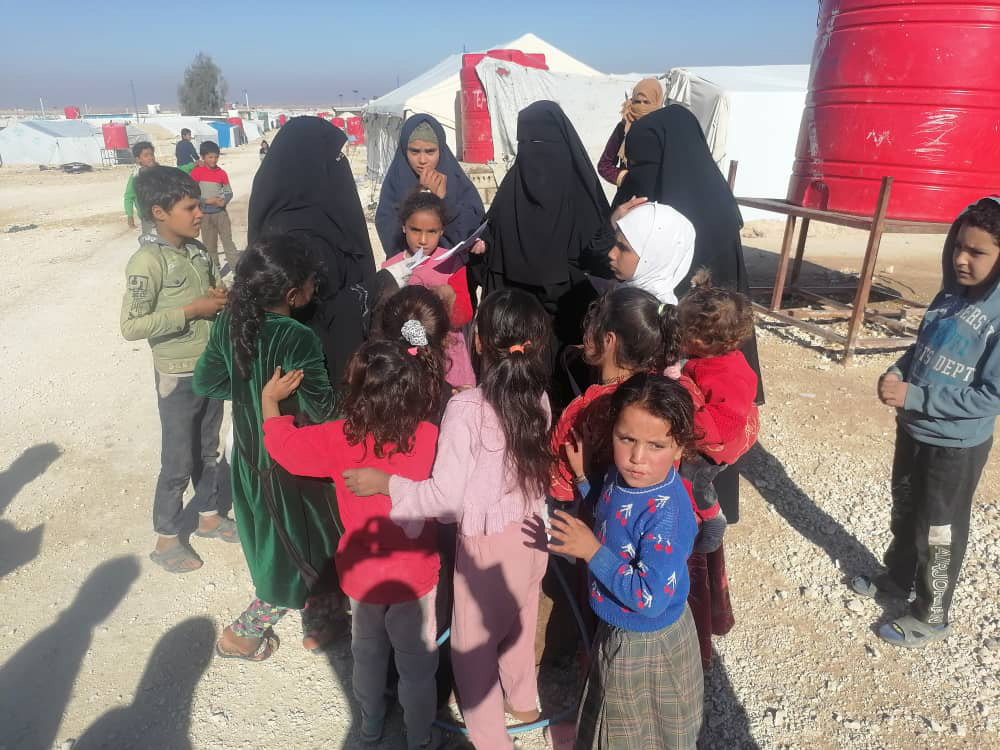 Walaa Mohammed, a resident of Al-Hol camp and outreach volunteer, speaks with her neighbours to address concerns and build trust in the cholera vaccination campaign. Photo: WHO. 19 January 2025 – In the vast and unforgiving terrain of north-east Syria, Al-Hol camp shelters nearly 40 000 displaced people – most of them women and children. Life in the camp is marked by overcrowding, inadequate shelter and poor sanitation. Disease outbreaks are a persistent threat and in late 2024, cholera emerged as the latest crisis.
Walaa Mohammed, a resident of Al-Hol camp and outreach volunteer, speaks with her neighbours to address concerns and build trust in the cholera vaccination campaign. Photo: WHO. 19 January 2025 – In the vast and unforgiving terrain of north-east Syria, Al-Hol camp shelters nearly 40 000 displaced people – most of them women and children. Life in the camp is marked by overcrowding, inadequate shelter and poor sanitation. Disease outbreaks are a persistent threat and in late 2024, cholera emerged as the latest crisis.
Over 200 suspected cases were reported by December. Contaminated water and insufficient sanitation infrastructure were fuelling the outbreak, placing an already vulnerable population at further risk.
In response, the World Health Organization (WHO), in collaboration with UNICEF, Gavi, the Vaccine Alliance, and local health authorities, launched a 10-day oral cholera vaccination campaign, to protect as many lives as possible and halt the spread of the disease.
Addressing misinformation
However, misinformation spread as quickly as the disease.
Some residents questioned the vaccine’s safety, while others doubted its necessity. Walaa Mohammed, a resident of the camp, understood the fear in her community but wouldn’t let it stop her.
“People were afraid, but I wanted them to understand the vaccine was their best chance to stay healthy,” Walaa explained.
Determined to make a difference, Walaa joined the campaign’s outreach team. She visited tents, patiently answering questions and countering rumours. Her efforts resonated, particularly with women, who began stepping forward to protect their families.
Building trust
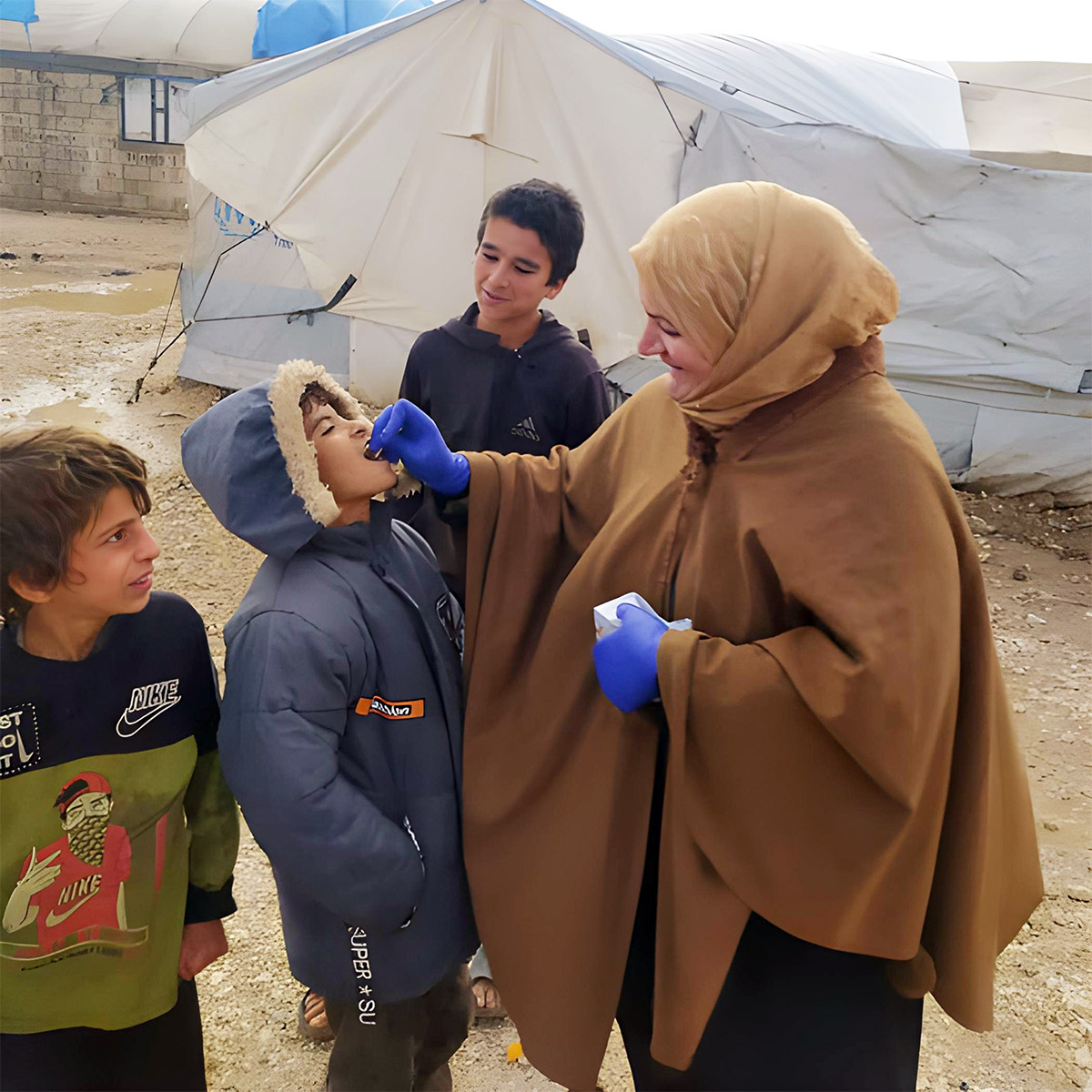 A volunteer gives the cholera vaccine to a child at Al-Hol camp, helping protect the community from the outbreak. Photo: WHO.In Sector 4 of the camp, she met Ziad, a 30-year-old father of two. Like many others, Ziad was skeptical. “Why should I get vaccinated? I’m healthy and cholera doesn’t affect adults like me,” he told the team.
A volunteer gives the cholera vaccine to a child at Al-Hol camp, helping protect the community from the outbreak. Photo: WHO.In Sector 4 of the camp, she met Ziad, a 30-year-old father of two. Like many others, Ziad was skeptical. “Why should I get vaccinated? I’m healthy and cholera doesn’t affect adults like me,” he told the team.
But after Walaa and the health workers explained how cholera spreads and its risks to everyone, Ziad changed his mind. Days later, he joined the outreach efforts himself, walking through the camp and encouraging his neighbours.
“I saw how quickly the team acted to help us,” Ziad said. “Now, I want to be part of that change.”
Reaching every corner of Al-Hol
From 28 December 2024 to 7 January 2025, over 25 000 people in Al-Hol camp received oral cholera vaccines. This effort relied on a team of 40 trained vaccinators, supported by 15 logistical staff and 11 vehicles, navigating challenging terrain and security constraints to ensure every dose was delivered.
The community outreach component was just as crucial.
Fifty health committee members worked tirelessly to inform residents about the vaccine. Tent-to-tent visits and group dialogues reached over 16 000 people directly, while thousands more were referred to vaccination points.
Vaccines were carefully transported under cold-chain protocols, ensuring they remained effective. Teams prioritized high-risk areas such as sectors 1, 2 and 5 of the camp, where the outbreak had hit hardest. Children between the ages of 5 and 15 received the most doses, accounting for nearly half of those vaccinated.
Delivering vaccines just in time
The vaccination campaign was a race against time.
The doses had been transported from existing stocks north-west Syria, thanks to swift coordination between WHO, UNICEF and local health authorities.
Despite the urgency, every dose was used – achieving 100% vaccine utilization.
This effort wasn’t just about stopping the spread of cholera. It demonstrated the impact of empowering local communities to take the lead in protecting their health.
As Walaa reflected on the campaign, her pride was evident. “We showed that even in the hardest conditions, we can protect each other.”





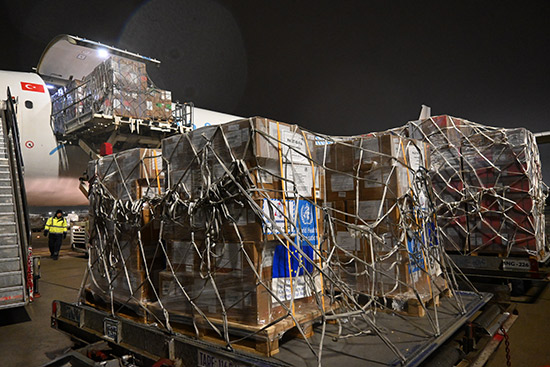
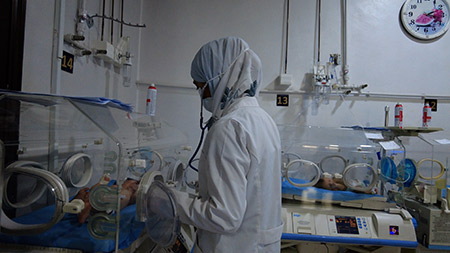
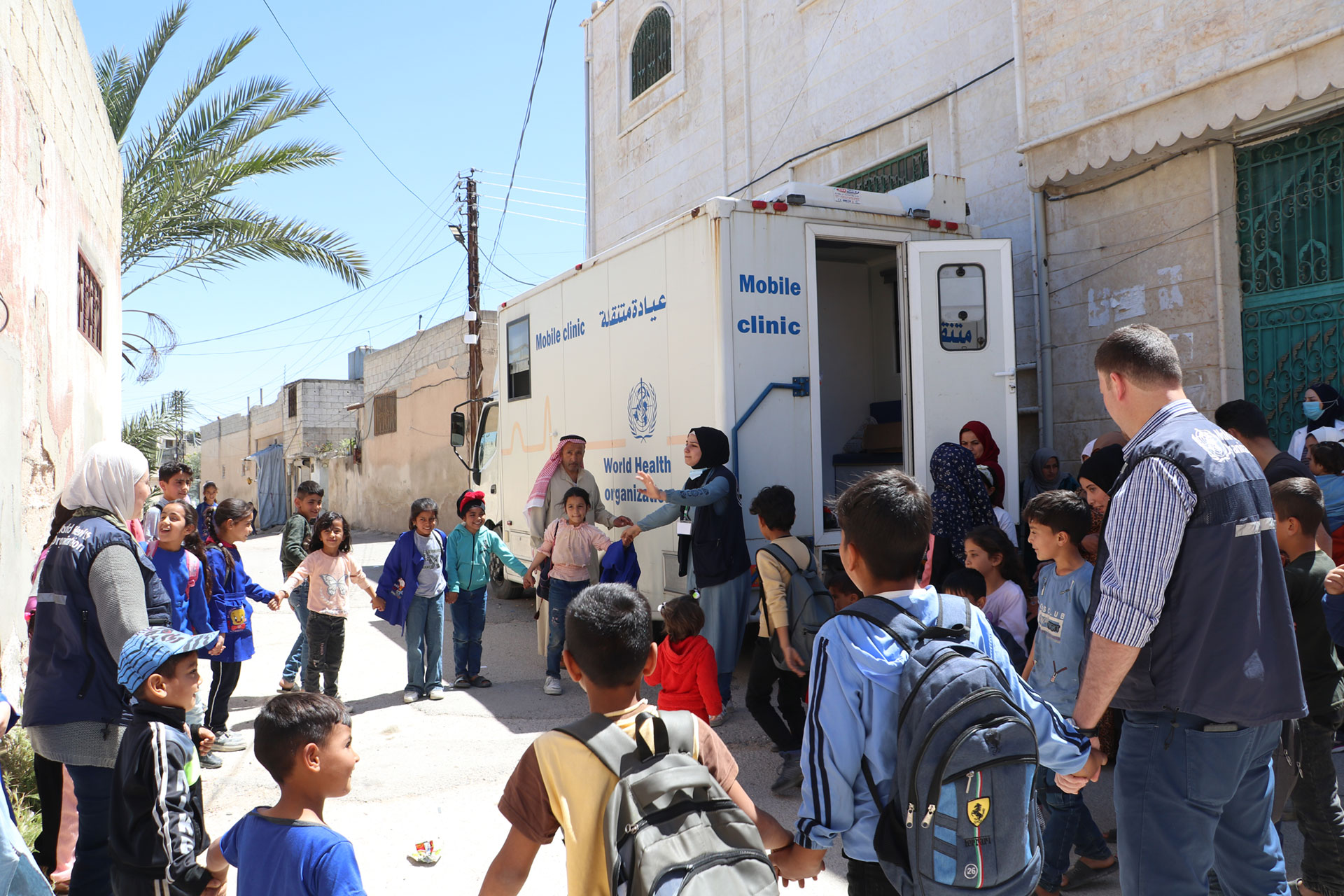 <1 December 2024, For a mother in Aleppo seeking safe childbirth, or a child in Damascus coping with chronic illness, access to basic health services is far from guaranteed. After more than a decade of war, there are no easy fixes for the Syrian Arab Republic’s struggling health system.
<1 December 2024, For a mother in Aleppo seeking safe childbirth, or a child in Damascus coping with chronic illness, access to basic health services is far from guaranteed. After more than a decade of war, there are no easy fixes for the Syrian Arab Republic’s struggling health system.